Introduction
The 2024 Academic Research Security Symposium is hosted by University of Illinois Chicago in coordination with FBI Chicago.
Program Schedule
Registration
Pick up your name badge and parking voucher at the registration table outside the entrance to the Illinois Room. Then enjoy continental breakfast items and network with colleagues.
This is also an opportunity to submit questions to speakers and panelists in advance using the QR codes located on tables throughout the room. If you don’t have your cell phone, you can also submit questions in advance using the index cards and pens at the tables. Make sure you hand the cards off to a UIC staff member.
Symposium Emcee, Siobhan Johnson, Public Affairs Officer, FBI Chicago
Special Agent Siobhan Johnson is the Public Affairs Officer for the Federal Bureau of Investigation’s Chicago Field Office. A Special Agent since 2007, she has investigated cyber and local terrorism cases spanning 4 continents, recruited top talent for the Bureau as Recruiting Coordinator, and engaged with Congressional representatives as Congressional Affairs Liaison. In her current role, SA Johnson coordinates on-scene crisis responses, executes press conferences, creates social media campaigns, trains law enforcement executives worldwide, and manages local and national news inquiries for both routine and emergent situations. SA holds a Master of Public and International Affairs with an emphasis on Security and Intelligence Studies.
Robert W. "Wes" Wheeler, Special Agent in Charge, FBI Chicago
Robert W. “Wes” Wheeler Jr. is the Special Agent in Charge of the Chicago Field Office. Mr. Wheeler most recently served as the chief of staff to the executive assistant director of the Criminal, Cyber, Response, and Services Branch at FBI Headquarters in Washington, D.C.
Mr. Wheeler joined the FBI in 1999 as a special agent and was assigned to the Sherman Resident Agency (RA) in Texas, a satellite of the Dallas Field Office. Mr. Wheeler worked a wide variety of criminal matters in Sherman. In 2002, he was assigned counterterrorism duties in the Plano RA of the Dallas Field Office and also served with the North Texas Joint Terrorism Task Force.
In 2006, Mr. Wheeler joined the protection detail for the U.S. attorney general and transferred to Washington. In 2007, Mr. Wheeler began teaching new agents as an instructor at the FBI Academy in Quantico, Virginia. He also deployed to Kabul, Afghanistan, for several months in late 2009 to work kidnapping matters as a member of the Major Crimes Task Force.
Mr. Wheeler joined the Counter-Improvised Explosive Devices Section of the Critical Incident Response Group at FBI Headquarters as a team leader in 2012. He was promoted to chief of the Counter-IED Readiness Unit in CIRG in 2015 and also served as the chief of the National Explosives Task Force.
Mr. Wheeler was promoted in 2017 to supervisory special agent over the National Capital Response Squad in the Washington Field Office (WFO). In 2018, he led a WFO international terrorism squad focused on the continental United States and Middle East-based threats. He was promoted in 2020 to WFO’s assistant special agent in charge of the Mission Services Division, covering workforce development, applicants, security, and special inquiry background investigations.
In 2021, Mr. Wheeler returned to Headquarters as a section chief in the International Operations Division, focusing on global readiness and legal attaché operations in Europe, Eastern Europe, and Eurasia. He became chief of staff in the Cyber, Criminal, Response, and Services Branch in 2022.
Prior to joining the FBI, Mr. Wheeler was a special agent of the Georgia Bureau of Investigation.
Jay Patel, Assistant Special Agent in Charge, FBI
Jay Patel is an Assistant Special Agent in Charge (ASAC) with the Federal Bureau of Investigation, in the Chicago Field Office. ASAC Patel has over 20 years of cyber security experience in the private sector and the FBI. ASAC Patel has investigated complex National Security cyber intrusion investigations involving US Government, Nuclear Power Companies, Defense Contractors, and financial institutions. ASAC Patel has significant cross-programmatic experience investigating and leading hybrid Counterintelligence and Cyber investigations. ASAC Patel also has experience leading high profile international counterterrorism investigations involving homegrown violent extremists.
Prior to becoming a Special Agent, ASAC Patel provided a wide range of management consulting services to various business sectors in New York. Some of the services provided were incident response, penetration testing, internal and external audits, and implementation of enterprise-wide IT security and governance framework to identify and mitigate risks.
ASAC Patel holds a Master’s of Science degree in Information Systems, with a focus on Cyber Security, from Stevens Institute of Technology and a Bachelor’s of Science degree in Computer Engineering from New Jersey Institute of Technology.
Description
Dr. Lee will provide an update on the DoD implementation of NSPM-33, including the DoD Policy on risk-based security reviews of fundamental research. These efforts are a continuation of DoD efforts to balance research security while delivering new capabilities to the warfighter at speed.
Patrick Lee, PhD, Director, Science & Technology Exploitation and Analytics, Maintaining Technology Advantage, Office of the Under Secretary of Defense for Research and Engineering
Dr. Patrick J. Lee is the Director for Science & Technology (S&T) Exploitation and Analytics in the S&T Program Protection Office in the Office of the Under Secretary of Defense for Research and Engineering. Dr. Lee is responsible for discovering, developing, and integrating analytical capabilities to identify, protect, and promote emerging S&T to maintain U.S. Department of Defense (DoD) technical advantage. Prior to joining the Department, Dr. Lee served as a computer engineer in the Department of Commerce. In that role, he implemented data-related emerging technologies, including artificial intelligence and machine learning, at Departments and Agencies across the Federal Government, including DoD, Department of Homeland Security, Food and Drug Administration, Health and Human Services, National Institute of Standards and Technology, and U.S. Agency for International Development. Before joining the government as a civil servant, Dr. Lee worked in both industry and academia in the areas of neuroscience, biomechanics, and human factors. Dr. Lee received a B.S. and M.S. in Mechanical Engineering from the Virginia Polytechnic Institute and State University (Virginia Tech), and Ph.D. in Biomedical Engineering from the Catholic University of America. He is also a licensed Professional Engineer
Coffee Break
Enjoy coffee and continental breakfast items while briefly networking with colleagues.
Description
Recognizing an increasing need to protect U.S-funded scientific research, National Security Presidential Memorandum (NSPM) 33 was issued by President Trump and endorsed by President Biden in 2021. NSPM-33 requires certain research institutions to certify that they have implemented a research security program that includes:
- Cybersecurity
- Foreign travel security
- Research security training
- Export control training
This panel will explore the successes and challenges associated with NSPM-33’s implementation and certification requirements.
Moderator: Matt Riley, Associate Vice Chancellor for Innovation and Chief Information Officer, University of Illinois Chicago
As Associate Vice Chancellor and Chief Information Officer, Matt is a member of the Vice Chancellor for Innovation’s leadership team and is responsible for all aspects of central IT – including all computing and information technology services and infrastructure, education and research technologies, and strategy and planning. He works collaboratively with key stakeholders, including university leadership and college/departmental IT staff, to align computing and information technology priorities with the strategic goals and objectives of the university, and to identify ways to advance the use of the university’s computing and information technology resources to drive innovation.
Lori Doll, Research Policy and Compliance Program Director, University of Notre Dame
Lori is the Research Policy and Compliance Program Director where she analyzes, interprets, and advises on federal policies and regulations that directly impact the University research community. She advises faculty members on the dynamic landscape of research security, particularly around disclosure requirements, as well as training research administrators and other University staff. She assists with University policy development and implementation as it relates to research. Lori has 10 years of experience working in many areas of research administration including grant management, contract negotiation, policy, and compliance. Prior to joining Notre Dame Research, Lori spent 18 years working in a variety of roles in municipal government.
Matt Gneuhs, Research Security Compliance Specialist, Research Security and Ethics, University of Cincinnati
Matt is a Research Security Compliance Specialist at the University of Cincinnati, where he coordinates the development of the research security program, including the development of training, policies, and procedures. Prior to this position, he has over 20 years of experience in emergency management, leading the development of emergency response plans, business continuity plans, and training programs. In these roles, he has worked with local, state, and federal agencies. He has spoken and published on diverse topics in the emergency management field such as the use of virtual reality in emergency preparedness training and leadership structures in emergency response.
Margaux Murali, Deputy Director, Office of Research, Technology, and Economic Security, U.S. Department of Energy
Margaux is a Deputy Director at the U.S. Department of Energy (DOE) in the newly created Office of Research, Technology and Economic Security. In this role, she leads a team of risk analysts to conduct due diligence reviews in support of DOE’s research, development, demonstration, and deployment activities. She also develops risk mitigation strategies and engages in stakeholder outreach.
Ms. Murali earned an M.A. in International Relations and Economics from The Johns Hopkins University School of Advanced International Affairs (SAIS) with a concentration in Energy, Resources, and the Environment. She spent a year of post-graduate study at the Hopkins-Nanjing Center in Nanjing, China and earned a Graduate Certificate in Chinese and American Studies. She also holds a B.A. in International Studies from Middlebury College.
Elizabeth Wagner, Senior Director of Research Security & Trade Compliance, Purdue University
TBD
Description
Federal agencies have implemented risk review as part of the award process for sponsored programs. A panel of experts will discuss the plans that are implemented when risk is identified by federal agencies and how these plans impact institutions.
Moderator: Peggy Diskin, Director, Pre-Award Services, Office of Sponsored Programs, University of Illinois Chicago
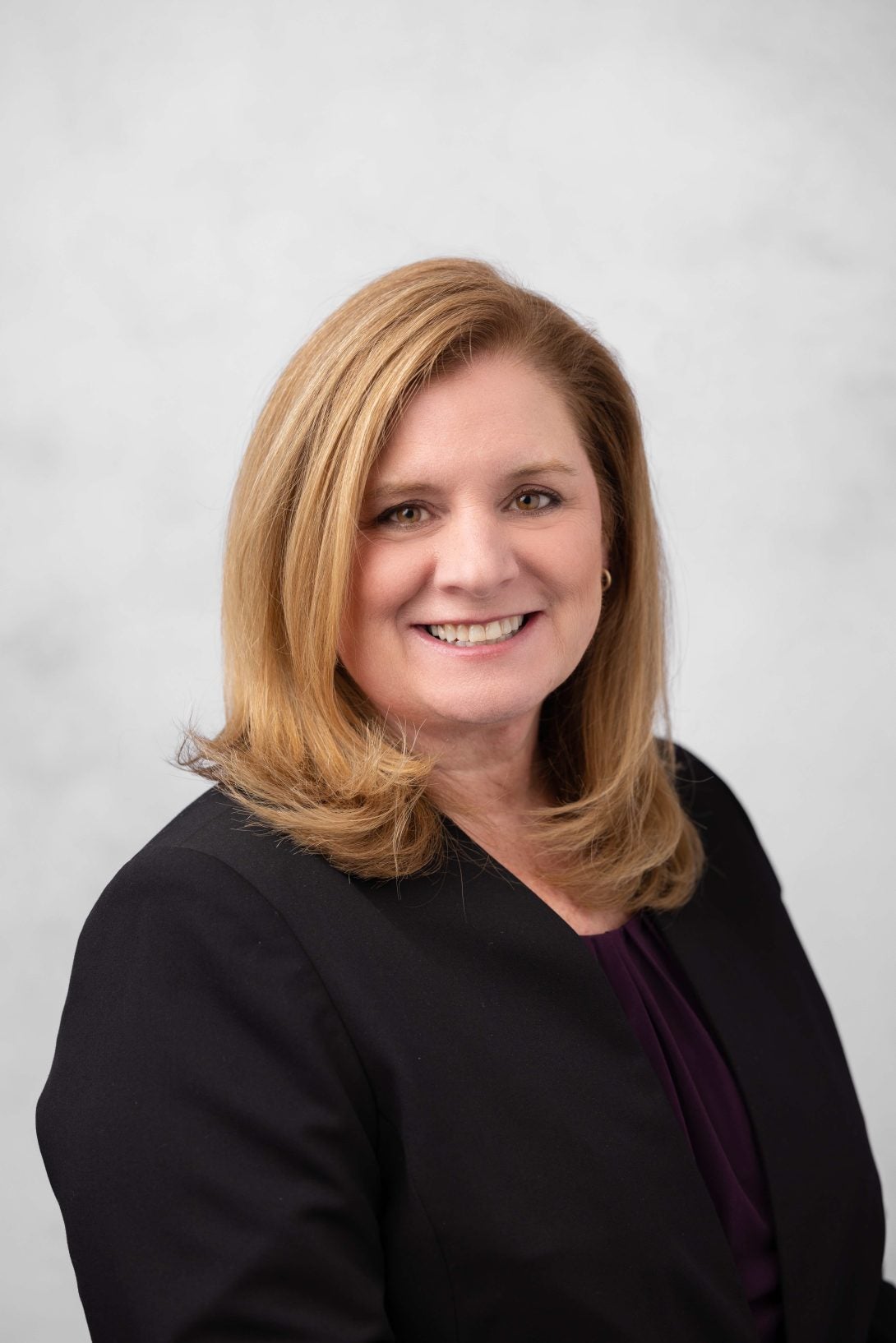
Peggy holds a Masters of Public Health from UIC, and brings over 30 years of experience in both pre- and post-award research administration to her new role. Most recently, she served as the Associate Director, Sponsored Projects (Proposals) in the UIC Office of Research Services. In her 3.5 years at UIC, she has been engaged in a number of projects and initiatives, such as the implementation of MyProposals, and is currently managing several fairly complex matters, such as clinical trial billing and development, foreign influence and disclosures.
Kathy Gentry, Senior Export Compliance Officer, University of Illinois Urbana-Champaign
Kathy Gentry is the Senior Export Compliance Officer for the University of Illinois Urbana-Champaign. Kathy joined the University in 2017, working for several Colleges before settling in Sponsored Programs Administration (SPA) in 2019. The Export Control Office if the point of contact for all export control and foreign influence issues. This office handles contract/grant review, training and outreach, restricted party screenings and vetting.
Before coming to the University, Kathy worked 27 years in industry for chemical companies- handling exports for hazardous materials and all things compliance (OSHA, DOT, EPA, DHS, DEA, NRC, FAA).
Kathy is a member if the Association of University Export Control Officers (AUECO), ECoP®(EAR/ITAR) certified, and a University of Illinois Certified Research Administrator (Illini CRA).
Patrick Lee, PhD, Director, Science & Technology Exploitation and Analytics, Maintaining Technology Advantage, Office of the Under Secretary of Defense for Research and Engineering
Dr. Patrick J. Lee is the Director for Science & Technology (S&T) Exploitation and Analytics in the S&T Program Protection Office in the Office of the Under Secretary of Defense for Research and Engineering. Dr. Lee is responsible for discovering, developing, and integrating analytical capabilities to identify, protect, and promote emerging S&T to maintain U.S. Department of Defense (DoD) technical advantage. Prior to joining the Department, Dr. Lee served as a computer engineer in the Department of Commerce. In that role, he implemented data-related emerging technologies, including artificial intelligence and machine learning, at Departments and Agencies across the Federal Government, including DoD, Department of Homeland Security, Food and Drug Administration, Health and Human Services, National Institute of Standards and Technology, and U.S. Agency for International Development. Before joining the government as a civil servant, Dr. Lee worked in both industry and academia in the areas of neuroscience, biomechanics, and human factors. Dr. Lee received a B.S. and M.S. in Mechanical Engineering from the Virginia Polytechnic Institute and State University (Virginia Tech), and Ph.D. in Biomedical Engineering from the Catholic University of America. He is also a licensed Professional Engineer.
John Jay Miller, PhD, Interim Director of the Research Security Program, University of Wisconsin-Madison
John Jay Miller began his role as UW–Madison’s Interim Director of the Research Security Program in the Office of the Vice Chancellor for Research, Research Policy and Integrity in November 2022. In this role, he is responsible for the organization, management and supervision of the Research Security Program and Export Controls
Before his current appointment, he was a Policy Specialist for UW-Madison. John served as the Export Control Officer at Indiana University and the University of North Dakota. He has over ten years’ experience in higher education working on federal compliance and policy development. Prior to working in higher education, he practiced law for 20 years as a prosecutor and municipal attorney in Kansas. John received a Bachelor of Science in Business Administration and a Juris Doctor from the University of Kansas.
Lunch
Enjoy a buffet lunch and network with colleagues.
Description
This session explores the concept of soft diplomacy through leveraging strong international relationships and collaboration while remaining vigilant to sensitive issues.
Moderator: Stephanie Cologna, PhD, Associate Professor and Associate Vice Chancellor for Research, University of Illinois Chicago
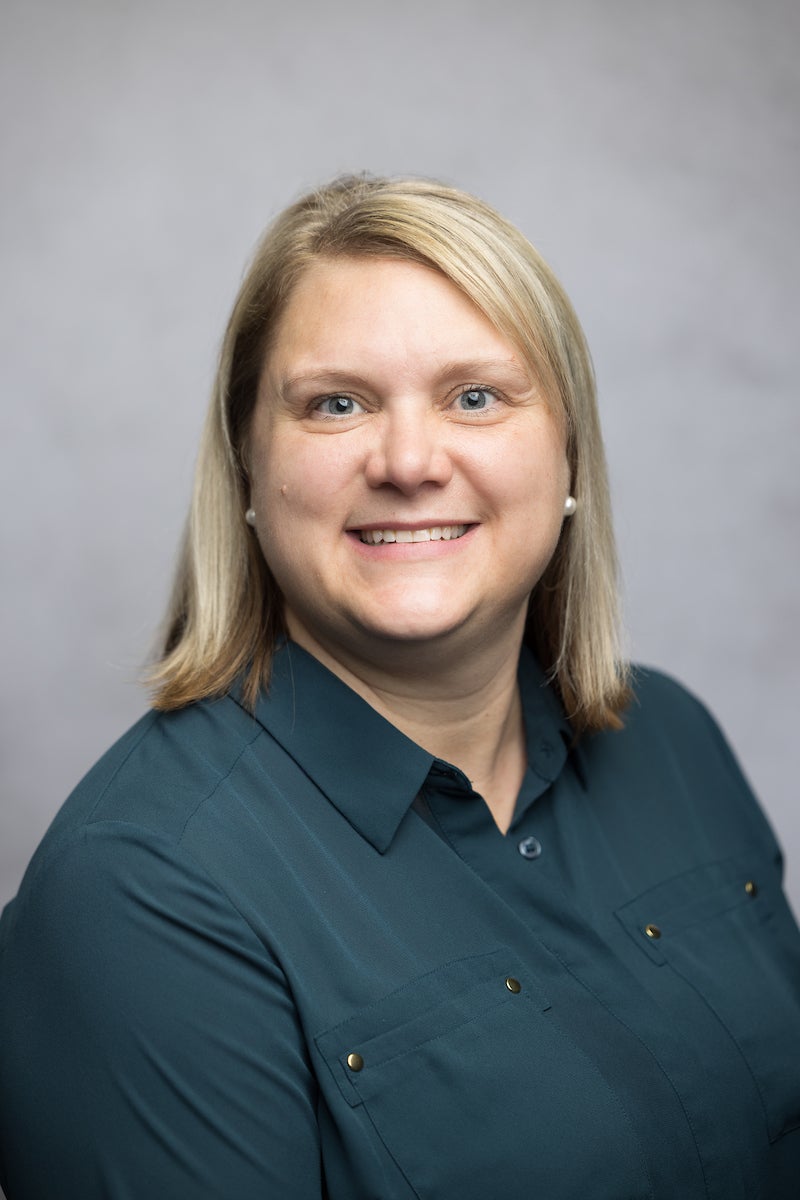
Stephanie M. Cologna, PhD is an Associate Professor of Chemistry and Associate Vice Chancellor for Research at the University of Illinois Chicago (UIC). She received her B.S. in Chemistry from the University of Arizona followed by doctoral studies at Texas A&M University under the mentorship of David H. Russell. Dr. Cologna carried out post-doctoral training at the Eunice Kennedy Shriver, National Institute of Child Health and Human Development, National Institutes of Health under the mentorship of Dr. Forbes D. Porter, MD, PhD and Dr. Alfred L. Yergey III, PhD. Her independent research program was established in 2015 at UIC and is focused on integrating mass spectrometry-based proteomics and lipidomics along with mass spectrometry imaging to understand neurodegeneration. A significant component of the Cologna laboratory is focused on the fatal, lysosomal storage disorder, Niemann-Pick Type C including identification and validation of disease biomarkers using mass spectrometry technologies.
Dr. Cologna and her research team have been recognized for their work by the Robert J. Cotter New Investigator Award from the US Human Proteome Organization (2022), the UIC Rising Star Junior Research of the Year (2019) and she has received an NSF CAREER Award (2022). Dr. Cologna’s research is funded by the National Institutes of Health, the National Science Foundation, the US Food and Drug Administration and by several private foundations.
As an Associate Vice Chancellor for Research, Dr. Cologna works closely with faculty in STEM and biomedical research areas at UIC to foster collaborative team science, enhance faculty recognition and to expand the research portfolio.
Andrew Boyd, MD, Associate Vice Chancellor for Research in Computing and Data Initiatives, Chief Research Information Officer and Associate Chief Health Information Officer for Innovation and Research at UI Health, and Associate Professor, University of Illinois Chicago
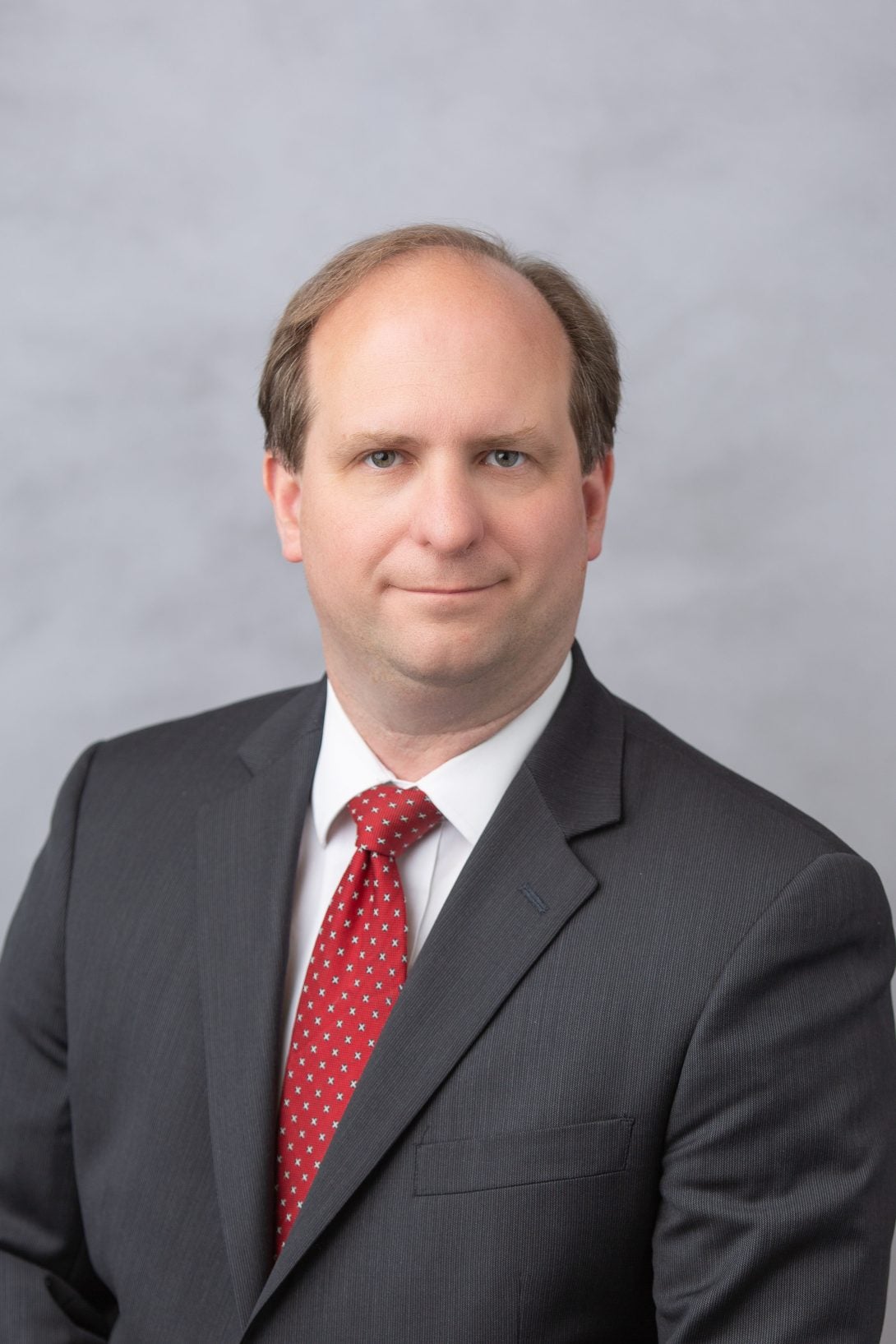
Andrew Boyd has served as the Associate Vice Chancellor for Research in Computing and Data Initiatives at the University of Illinois Chicago since March 2020. In 2022, he was named Chief Research Information Officer at UIC. He is an associate professor in the Department of Biomedical and Health Information Sciences, and the Department of Physical Therapy, College of Applied Health Sciences and the Department of Medical Education, College of Medicine. He is also the Associate Chief Health Information Officer for Innovation and Research at UI Health. The research in his laboratory involves data simplification to improve clinical outcomes engaging patients, administrators, and clinicians. He is a fellow of the New York Academy of Medicine.
He earned his undergraduate degrees in Chemistry and Mathematics from Southern Methodist University and earned his doctorate in medicine from the University of Texas Southwestern Medical School in Dallas, TX. He was a postdoctoral fellow and research faculty at the University of Michigan in biomedical and health informatics before joining UIC in 2008.
Eric Perrault, PhD, Vice President for Research and Professor, Northwestern University
Eric J. Perreault, Ph.D., is a distinguished biomedical engineer and administrative leader whose research has improved our understanding of movement and posture control and its applications in rehabilitation and neuroprosthetics. He was appointed Vice President for Research at Northwestern University on Sept. 15, 2023, and has been a faculty member at the University since 2002. He holds joint appointments at the McCormick School of Engineering, the Feinberg School of Medicine, and the Shirley Ryan AbilityLab.
Dr. Perreault has served in various leadership roles, including Associate Dean for Research Administration at the McCormick School and Chair of the Department of Biomedical Engineering. He also chaired the National Advisory Board for Medical Rehabilitation Research and was president of the International Society for Electrophysiology and Kinesiology.
He leads NURTURE, a program funded by a $16 million NIH grant that aims to foster inclusivity and equity at Northwestern. This initiative seeks to transform hiring, mentoring, and promotion practices across several Northwestern schools.
As Vice President for Research, Dr. Perreault oversees a vast research infrastructure with $1 billion in annual funding. He manages compliance, animal care, laboratory safety, research IT, core facilities, and research innovation/translation. He also directs strategic research initiatives across 35 interdisciplinary research institutes and centers.
Dr. Perreault earned his Ph.D. in biomedical engineering from Case Western Reserve University, and holds master’s and bachelor’s degrees in electrical engineering from McGill University
Mark Rickenbach, PhD – Interim Associate Vice Chancellor for Research Policy and Integrity and Professor, University of Wisconsin-Madison
Mark Rickenbach is the interim vice chancellor for research policy and integrity at the University of Wisconsin-Madison. In this role he oversees financial and institution conflicts of interest, research security, and export control. He is also the research integrity officer (RIO) handling allegations of research misconduct and administering responsible and ethical conduct of research training. He is a professor of Forest & Wildlife Ecology and has served as a department chair and as an associate dean.
Description
Research may have implications beyond the fundamental aspects of the research. Federal agencies are implementing restrictions on research more and more frequently. The panel will discuss some of the new restrictions that are being put in place and how different institutions can respond to these restrictions.
Moderator: Rick A. Gemeinhart, PhD, Professor, Research Integrity Officer, and Associate Vice Chancellor for Research
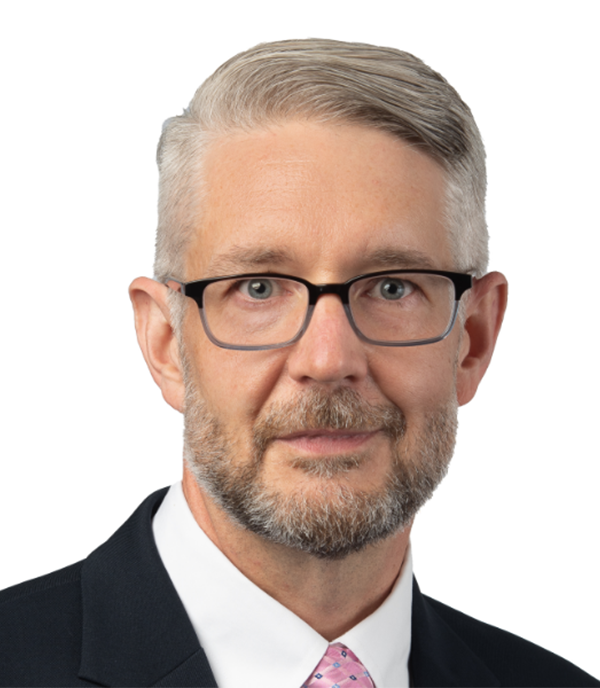
Rick Gemeinhart has served as the Research Integrity Officer in the Office of the Vice Chancellor for Research at the University of Illinois Chicago since late 2014 and in March 2020 was appointed as an Associate Vice Chancellor for Research.
Professor Gemeinhart holds appointments in the Department of Pharmaceutical Sciences in the College of Pharmacy, the Departments of Bioengineering and Chemical Engineering in the College of Engineering and the Department of Ophthalmology and Visual Sciences in the College of Medicine at the Professor level. His research focus is on understanding the use of polymers to control the local release of therapeutic molecules and the understanding of the influence of polymers on cellular phenotype.
Named as a Society for Biomaterials Young Investigator, American Association of Colleges of Pharmacy New Investigator and Vahlteich Scholar at UIC, Professor Gemeinhart has received funding from the National Institutes of Health (NIH), the National Science Foundation (NSF) and the Department of Defense (DOD) as well as from several foundations. He has served as a reviewer for federal agencies (NIH, NSF, DOD), is currently an editor of Pharmaceutical Research and also serves on the editorial boards of two additional journals.
Professor Gemeinhart earned both his undergraduate degree in Interdisciplinary Engineering and his doctorate in Pharmaceutics from Purdue University and completed a postdoctoral fellowship at Cornell University School of Chemical and Biomolecular Engineering before joining UIC in 2001.
Crista Brawley, Associate Vice President for Research, Northwestern University
Crista Brawley, PhD, CCRP is an Associate Vice President for Research at Northwestern University in the central Office for Research, overseeing regulatory and compliance units including: Export Control and International Compliance, Research Security, IRB, IACUC, IBC, Research Safety, Research Integrity and Misconduct, and collaborating with University compliance on oversight of research COI. Crista has been with Northwestern for 2.5 years. Prior to joining the executive team in the Office for Research at NU, she was the Vice President of Research Operations and Chief Research Administrator at Rush University Medical Center, where she oversaw the entire research mission. Crista has over 20 years of experience within Research where she began as a basic scientist, transitioned into research and healthcare administration after her postdoctoral training at The University of Chicago, and has become a senior leader in research operations with a focus on regulatory affairs. Crista earned her Ph.D. in Biochemistry, Cellular, and Molecular Biology from The Johns Hopkins University School of Medicine. She is also a certified clinical research professional with the Society of Clinical Research Associates (SoCRA).
Jamie Mohler, PhD, Associate Vice President of Scientific Integrity and Research Compliance, Research Integrity Officer & Professor, Purdue University
Dr. Jamie Mohler is Associate Vice President of Scientific Integrity and Research Compliance (AVPSIRC), Research Integrity Officer (RIO) and professor of Computer Graphics Technology at Purdue University. As AVP, Jamie provides executive leadership and coordination amongst the various research compliance areas including IRB, IACUC, COI/COC, Export Control, Research Security and Animal Care. As RIO he is responsible for stewarding Purdue’s research misconduct policy and procedures, as well as delivery of responsible conduct of research training for the university.
Description
A distinguished panel of experts from the Department of Commerce, Argonne National Laboratory and University of Chicago will discuss recent updates in export controls regulations, relevant enforcement actions, and new training efforts to correspond with NSPM-33. The panel will answer audience questions related to export controls and higher education.
Moderator: Patricia Pfister, Export Control Officer, University of Illinois Chicago
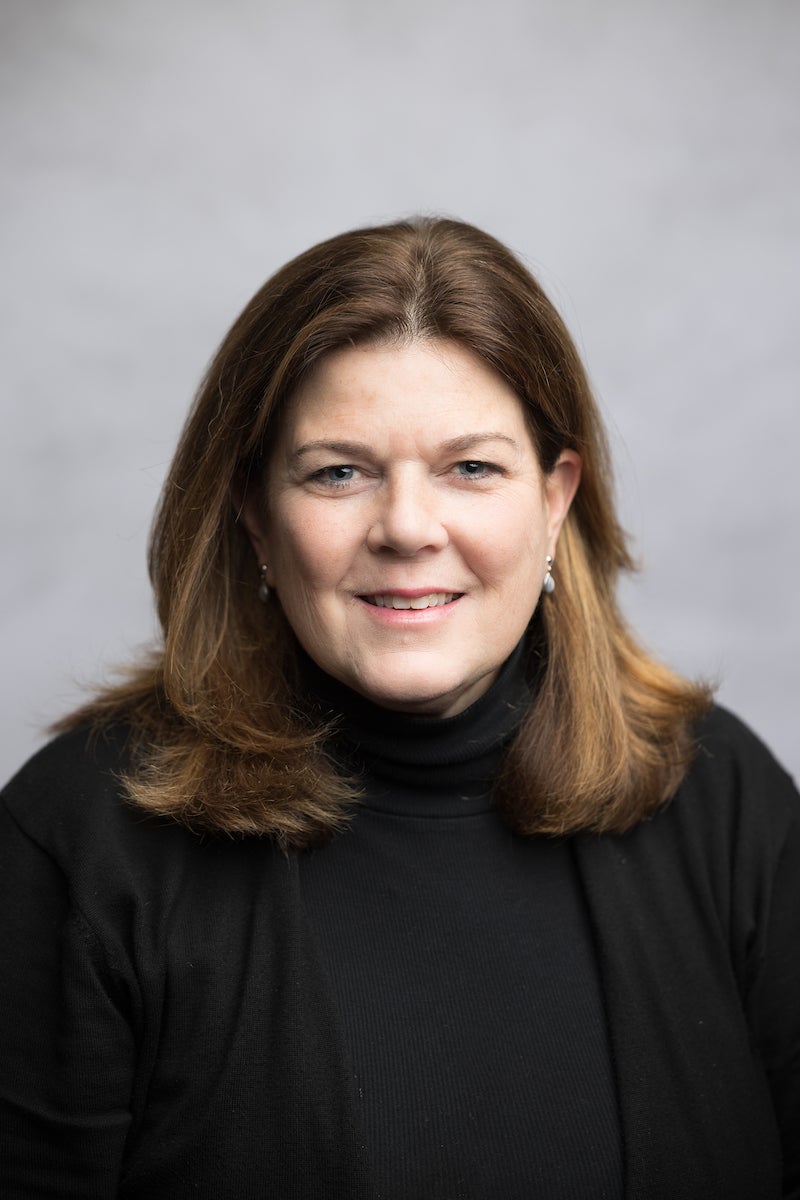
Patricia Pfister is the Export Controls Compliance Officer for the University of Illinois Chicago. In her role, Patricia is the primary point of contact for the review of all issues related to export controls at UIC.
Ms. Pfister has worked in academic research administration and compliance for over a decade. Prior to transitioning to academia, Patricia worked, for twelve years, in industry as the Vice President, Business and Legal Affairs for an international entertainment company, and prior to that as an associate attorney in private practice.
Patricia joined UIC in 2007 and held positions as the Legal Coordinator, Assistant Director, Contracts and Associate Director, Sponsored Projects and Research Contracts in the Office of Research Services and the Office of Technology Management. She spent two years at Northwestern University as a Senior Contract and Grant Officer in the Office for Sponsored Research on the Evanston campus and a Grant and Contract Officer in OSR on the Chicago campus.
Patricia is a member of the Association of University Export Control Officers (AUECO), the Association of Corporate Council (ACC), and the Illinois Bar. She has a Bachelor of Arts degree in History from Eastern Illinois University, a Juris Doctorate degree from the University of Illinois Chicago School of Law, and is a Certified Research Administrator (CRA).
Aaron DeLee, Export Control Officer, University of Chicago
Aaron DeLee (he/him/his) serves as an Export Control Officer within the University of Chicago’s ‘University Research Administration’ office. With a distinguished career spanning 15 years in research administration at Northwestern University, he has held key roles at departmental, school and central levels. Aaron transitioned into export controls from his previous position, embarking on an Export Control Training program jointly facilitated by the University of Chicago, Argonne National Lab, and Fermi National Lab. This comprehensive training equipped him with expert knowledge in export control compliance, honed under the guidance of industry leaders across multiple institutions.
Ron Orzel, Principal Counterproliferation Specialist, Argonne National Laboratory
Ron Orzel currently serves as the Principal Export Compliance and Counterproliferation Specialist in the Strategic Security Sciences Division at Argonne National Laboratory. In this position he supports the U.S. Department of Energy’s National Nuclear Security Administration’s (NNSA) International Nonproliferation Export Control Program (INECP) as well as other Department of Energy and Department of State programs. Mr. Orzel is also a contracted National Security Advisor for General Dynamics Information Technologies, Inc. In this position he supports the Defense Threat Reduction Agency (DTRA), which provides education on countering weapons of mass destruction in more than 30 nations; engaging police, border officials, investigators and national security executives who determine the response to WMD threats on and within their borders.
Previously Mr. Orzel worked as a Special Agent and Special Agent-in-Charge for the U.S. Department of Commerce, Bureau of Industry and Security (BIS), Office of Export Enforcement (OEE) for 30 years. His office conducted thousands of criminal and administrative investigations involving violations of U.S. export laws.
Bryan Pabin, PhD, Special Agent, Department of Commerce
Bryan Pabin is a Special Agent with the U.S. Department of Commerce, Bureau of Industry and Security, and has been a criminal investigator with the Office of Export Enforcement (OEE), Chicago Field Office for over 20 years. He was previously a Special Agent with the U.S. Department of Housing and Urban Development, Office of Inspector General, where he investigated fraud, gang, and drug crime in and around Chicago. At OEE, he has completed numerous long-term, inter-agency investigations into a range of export violations concerning U.S. items, to include thermal imaging technology diverted to China for militarization, maritime products diverted to Iran for use on attack boats, and the transshipment of electronic modules incorporated into IEDs for use against U.S. troops. While at OEE Chicago (which covers 10 Midwestern states) he has visited, presented before, and worked with many exporters, universities, forwarders, and trade groups to help safeguard U.S. goods and technology. He is currently the OEE Academic Outreach Coordinator for the Midwest. SA Pabin also served 9 years as an army intelligence officer, including a 1-year deployment after 9/11 for the War on Terrorism. In 2017, he obtained a PhD in Criminology, Law, and Justice from the University of Illinois at Chicago.
Lani Tito, Senior Export Administration Specialist, Department of Commerce, Bureau of Industry and Security
Lani Tito is a Senior Export Administration Specialist with the U.S. Department of Commerce, Bureau of Industry and Security’s (BIS) Western Regional Office. Ms. Tito has nearly 18 years of federal service. In her current role, Ms. Tito conducts BIS outreach and educational activities for the western region of the United States and is a lead contributor to BIS’ outreach efforts to small- and medium-sized enterprises and academia. Ms. Tito was awarded a Department of Commerce Bronze Medal in 2021 and a Greater Los Angeles Federal Executive Board Public Service Award in 2019 for developing export compliance educational videos for the business community. Prior to joining BIS’s Western Regional Office, Ms. Tito supported a number of programs for BIS in Washington D.C. She represented BIS at the Committee on Foreign Investment in the United States interagency meetings, supported the Operating Committee, and reviewed export license applications and classification requests. Ms. Tito also served as a national program manager for the Department of Homeland Security, Homeland Security Investigations, overseeing customs trade fraud cases. She received her Bachelors of Science in Commerce and Economics from Santa Clara University and her Master in Public Policy from American University.
Afternoon Break
Enjoy coffee and a seventh inning stretch while briefly networking with colleagues.
Description
Research and education institutions have complex cybersecurity needs stemming from their use of scientific data and instruments, unique computational and storage resources, and complex collaborations that must be secured from intrusions that threaten to disrupt productivity, jeopardize privacy, and undermine national or economic security. Smart information security practices need to be tailored to these needs while continuing to support pathbreaking science. This panel brings together leaders in cybersecurity from government and higher education to discuss emerging cybersecurity threats, the federal response, and mitigation strategies to address key challenges.
Moderator: Jay Patel, Assistant Special Agent in Charge, Federal Bureau of Investigation
Jay Patel is an Assistant Special Agent in Charge (ASAC) with the Federal Bureau of Investigation, in the Chicago Field Office. ASAC Patel has over 20 years of cyber security experience in the private sector and the FBI. ASAC Patel has investigated complex National Security cyber intrusion investigations involving US Government, Nuclear Power Companies, Defense Contractors, and financial institutions. ASAC Patel has significant cross-programmatic experience investigating and leading hybrid Counterintelligence and Cyber investigations. ASAC Patel also has experience leading high profile international counterterrorism investigations involving homegrown violent extremists.
Prior to becoming a Special Agent, ASAC Patel provided a wide range of management consulting services to various business sectors in New York. Some of the services provided were incident response, penetration testing, internal and external audits, and implementation of enterprise-wide IT security and governance framework to identify and mitigate risks.
ASAC Patel holds a Master’s of Science degree in Information Systems, with a focus on Cyber Security, from Stevens Institute of Technology and a Bachelor’s of Science degree in Computer Engineering from New Jersey Institute of Technology.
Bruce Coffing, Chief Information Security Officer, City of Chicago
Bruce Coffing is an information security professional with over twenty-five years industry experience in information technology and cyber security. He is currently the Chief Information Security Officer for the City of Chicago. Prior to joining the City of Chicago, Mr. Coffing held information security positions at Bank of America and at consulting firm Accenture. Mr. Coffing holds the Certified Information Systems Security Professional (CISSP) certification and is a Qualified Technology Expert (QTE).
Mr. Coffing was a Finalist for the 2023 ChicagoCIO ORBIE CISO of the Year Award and was a Semi-finalist for the 2022 Chicago CISO of the Year Award.
Shefali Mookencherry, Chief Information Security Officer, University of Illinois Chicago
Shefali is a seasoned professional with expertise in information security, higher education, privacy, HIPAA, research, healthcare policy and strategy, promoting Interoperability (PI) and compliance. With 20+ years of cybersecurity, privacy, and higher education experience – including 30+ years of healthcare experience. She is acknowledged as a cybersecurity and privacy Subject Matter Expert (SME). Shefali also has a keen interest in the adoption of innovative technology and provides leadership, consultation, coordination, and integration of information processes with enterprise-wide information technology and information security and privacy strategies.
Matthew Osegard, Supervisory Special Agent, Federal Bureau of Investigation
Matt Osegard is a Supervisory Special Agent and has served in the FBI since 2004. He worked on and led a wide variety of Counterintelligence and Cyber matters as a Special Agent and Supervisory Special Agent. He is currently the Supervisor of FBI Chicago’s Criminal Cyber squad and FBI Chicago’s Cyber Task Force. Prior to this assignment, Mr. Osegard served as the Unit Chief of the FBI’s National Counterintelligence Task Force at FBI Headquarters. Mr. Osegard holds a bachelor’s degree from Marquette University and a master’s degree in Homeland Security Studies from Tulane University. Prior to his work at the FBI, Mr. Osegard served as an Armor officer in the U.S. Army and as a middle and high school history teacher.
Brian Yoshino, Cybersecurity Advisor (Chicago), Cybersecurity and Infrastructure Security Agency
Brian Yoshino serves as a Cybersecurity Advisor with the Cybersecurity and Infrastructure Security Agency (CISA) where he supports CISA’s mission of strengthening the security and resilience of the nation’s critical infrastructure. As a CSA, Mr. Yoshino is the liaison between federal services and state, local, tribal, and territorial governments, critical infrastructure, and private industry. He conducts various cyber preparedness, risk mitigation, and incident response coordination activities through public and private partnerships and outreach efforts.
Mr. Yoshino has over two decades of experience in cybersecurity spanning the federal civilian and private sector communities. Prior to joining CISA, Mr. Yoshino held positions within the National Security Agency and the Executive Office of the President, White House Information Security Directorate. He holds numerous cybersecurity certifications including the SANS GIAC Security Expert (GSE) certification. He holds a bachelor’s degree from Northern Illinois University and a master’s degree in Information Security from Lewis University.
Joanna Groden, PhD, Vice Chancellor for Research, University of Illinois Chicago
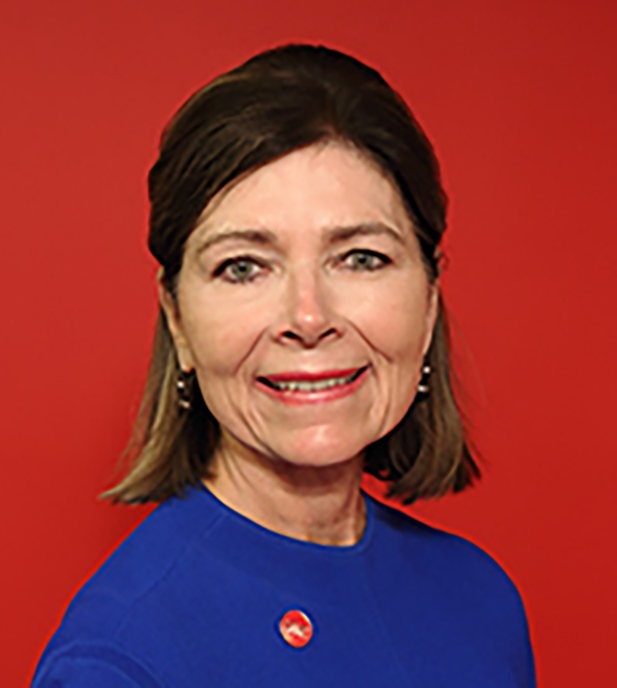
Dr. Joanna Groden currently serves as the Vice Chancellor for Research at the University of Illinois Chicago where she has highlighted cross campus collaborations and transdisciplinary research initiatives. The Office of the Vice Chancellor for Research is organized around recently restructured Offices of Research Integrity, Research Data Initiatives and Information, Research Development, Clinical and Human Subjects Research Compliance, and Sponsored Programs, as well as a highly specialized staff of research administrators. Continued investments in process management and IT infrastructure, reorganized shared services, facility renovations and newly purchased instrumentation have accompanied increases in submitted proposals, contracts, awards and research expenditures. UIC Research Award Dollars have increased more than 47% between FY18 and FY23 to exceed $500M.
Dr. Groden is a human geneticist and cancer biologist, internationally recognized for her research in determining key genetic causes of colon cancer and other inherited cancers through the identification of human disease genes and their functional characteristics. She was continuously funded by the National Institutes of Health for more than 30 years and previously appointed as an Investigator of the Howard Hughes Medical Institute. Dr. Groden serves and has served on numerous boards and advisory panels including the National Cancer Institute Board of Scientific Counselors, and actively participates in the peer review process for AACR, NIH and many other national and international funding agencies and scientific journals. With numerous publications and patents, Dr. Groden was elected a Fellow of the American Association for the Advancement of Science (AAAS) and a Fellow of the American Gastroenterological Association. She is a graduate of Middlebury College and Cornell University.
Reception
Enjoy cocktails and hors d’oeuvres and network with colleagues.
Submit Questions
-
All questions for speakers and panelists will be submitted electronically. Please use the links below to submit your questions.
Venue
The 2024 Academic Research Security Symposium will be held on the University of Illinois Chicago campus, on the third floor of Student Center East. Student Center East is located at 750 S. Halsted St., Chicago, IL 60607.
The event is in the Illinois Room. Signage will point you to the Illinois Room when you enter Student Center East from S. Halsted St.
Parking
Parking for the Symposium is available at the Halsted Street Parking Structure, located one block south of the venue at 760 W. Taylor St., Chicago, IL 60607.
Please bring your parking ticket with you. Parking validation vouchers are available at the registration table outside the Illinois Room.
Links for More Information
-
Links for More Information